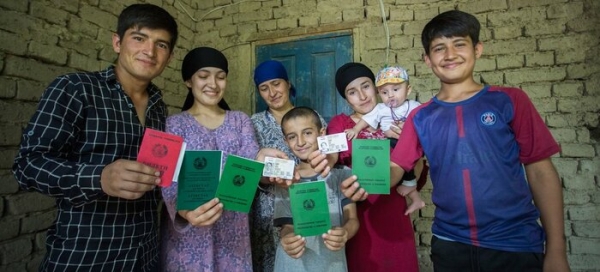On the occasion of the eighth anniversary of #IBelong, a campaign launched by UNHCR to eradicate statelessness within 2024, Grandi called on world leaders to take stronger political commitment and concrete actions to ensure access to citizenship for millions of people who are now forced to live in the shadows. Indeed, in its most general sense, citizenship consists in the attribution of rights thanks to belonging to a State. This concept is therefore linked to processes of political, social and economic inclusion and exclusion: those who do not have citizenship do not enjoy the rights that derive from it. Millions of people around the world live in conditions of exclusion and marginalization.
In an interview with UNHCR, a woman named Linda said that, although she was born in Moscow, she received Russian citizenship only in 2018. Due to the fact she wasn’t a citizen, Linda had no documents, she could not open a bank account, sign a lease or buy a SIM card for her phone. "When I got citizenship, I finally felt like I existed," she said.
In recent years, important progress has been made: approximately 450,000 stateless persons have acquired nationality, while tens of thousands of other people have started the process of obtaining it thanks to recent legislative changes in many states. Nevertheless, there are still many legislative and social obstacles preventing access to citizenship, including, in particular, discrimination related to gender, religion and ethnicity. Filippo Grandi, in this regard, said: “many of these obstacles can be reduced and eliminated through effective policies and solutions at the local level”, and, addressing the world leaders, added that they “must accelerate action and close the legal and policy gaps that continue to leave millions of people behind”.
To learn more, please visit:
- UN refugee chief urges stronger action to end ‘legal limbo’ of statelessness | | 1UN News
- Filippo Grandi: Ending statelessness ‘a matter of political will’ - Modern Diplomacy
- Ending statelessness ‘a matter of political will’, says UN refugee agency chief | End limbo for stateless people by 2024, urges UNHCR | 1UN News
by Amalia Ranieri







